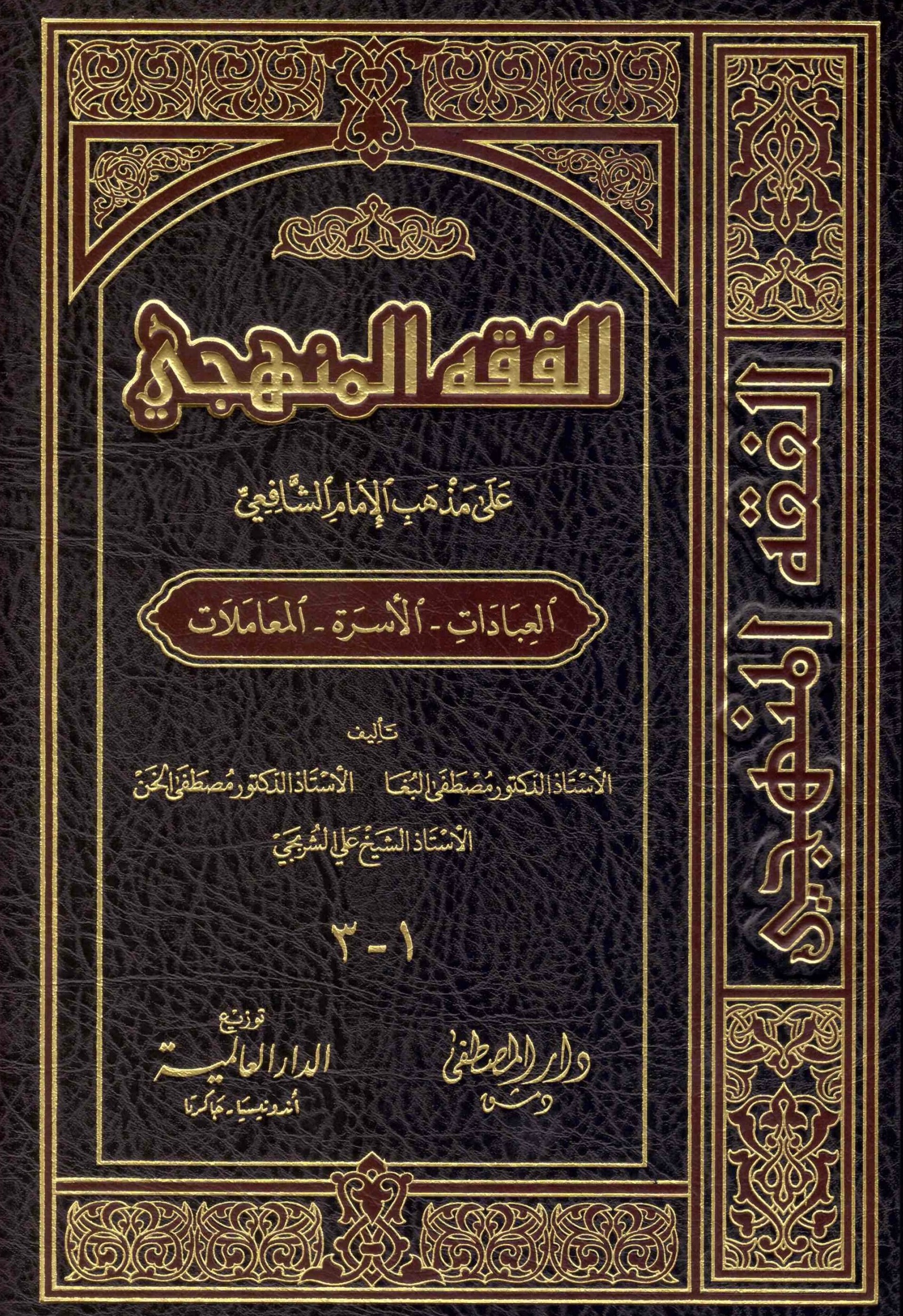Second Year
ʿAqīdah (Doctrine)
Ṭāhir al-Jazāʼirī’s compendium, Al-Jawāhir al-Kalāmiyyah fī Īḍāḥ al-ʽAqīdat al-Islāmiyyah, is used as the prescribed text for this subject. It is taught in the second half of the second semester. It is aimed here to:
- provide an introduction to the study of ʿaqīdah.
- acquaint the students with the fundamentals of the subject.
- provide a basis for further inquiry into the subject.
Course Material
Al-Jawāhir al-Kalāmiyyah fī Īḍāḥ al-ʽAqīdat al-Islāmiyyah
by Ṭāhir al-Jazāʼirī’
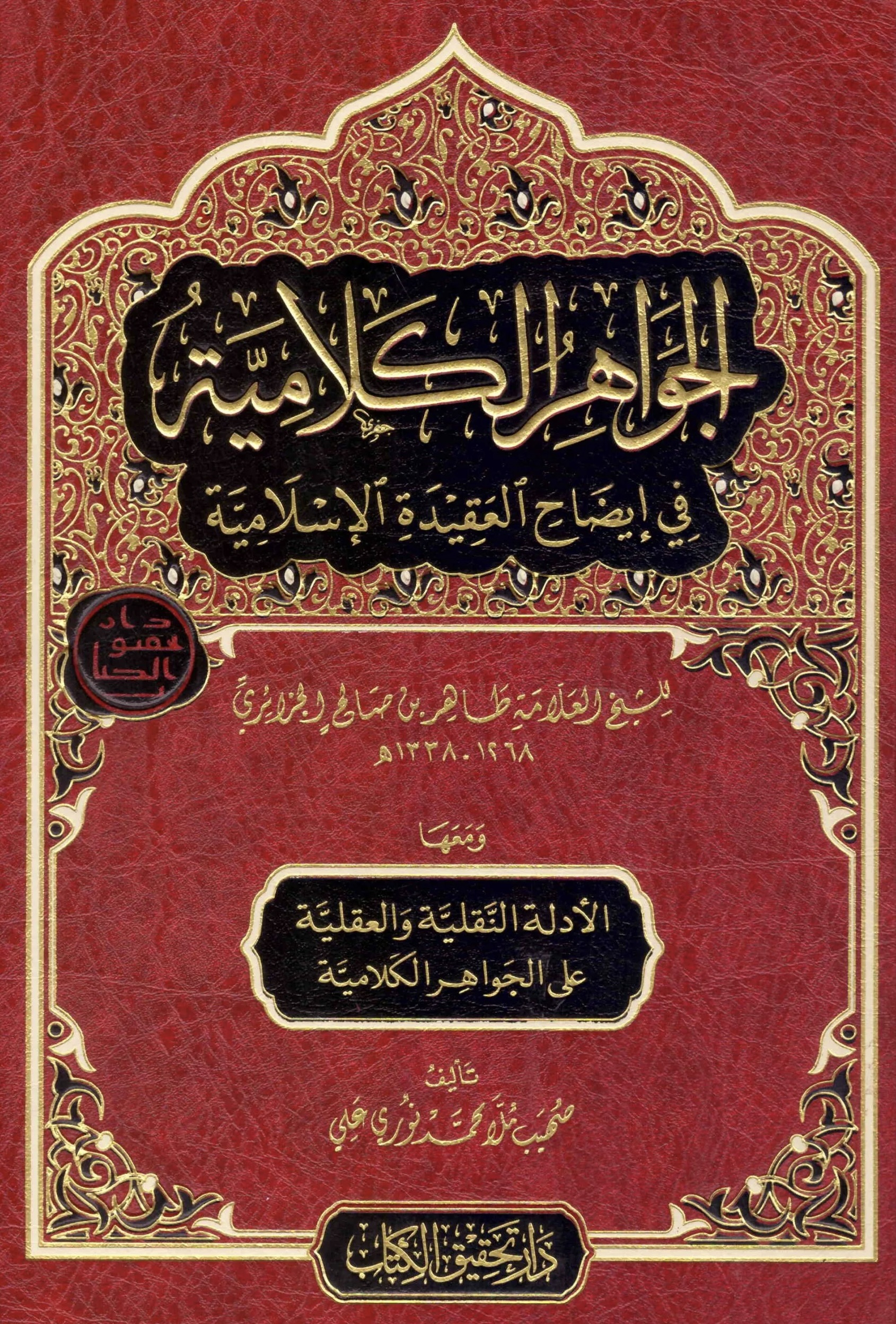
ʿUlūm al-Qurʼān (Quranic Sciences)
Two texts with respect to Quranic studies are taught this year. The first is Imām al-Nawawī’s Al-Tibyān fī Ādāb Ḥamalat al-Qurʼān, a work which serves to educate the reader as to the etiquette of learning, teaching, reading, and generally interacting with the Qurʼān. Second is Muḥammad ʿAliyy al-Ṣābūnī’s Al-Tibyān fī ʿUlūm al-Qurʾān, in which he delineates the methodology by which the Qurʼān is interpreted.
Al-Tibyān is taught with the aims of:
- inculcating respect for the Qurʼān.
- familiarising the students with the required conduct when interacting with the Qurʼān.
Al-Tibyān fī ʿUlūm al-Qurʾān is taught to:
- create an awareness of the broader themes of the Qurʼān.
- introduce the doctrine of abrogation (naskh) in the Qurʼān.
- acquaint the students with the causes of revelation (asbāb al-nuzūl).
- introduce linguistic aspects to the Qurʼān.
- familiarise the students with the primary exegetes and their respective methods.
- provide a theoretical framework for Qurʼān exegesis (tafsīr).
Course Material
Al-Tibyān fī Ādāb Ḥamalat al-Qurʼān
by Imām al-Nawawī
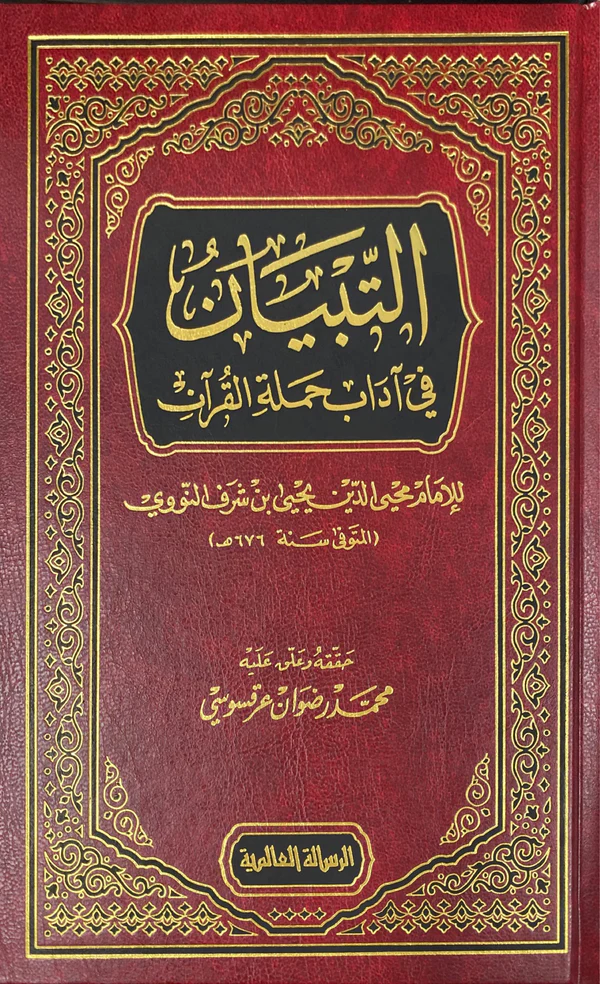
Al-Tibyān fī ʿUlūm al-Qurʾān
by Muḥammad ʿAliyy al-Ṣābūnī
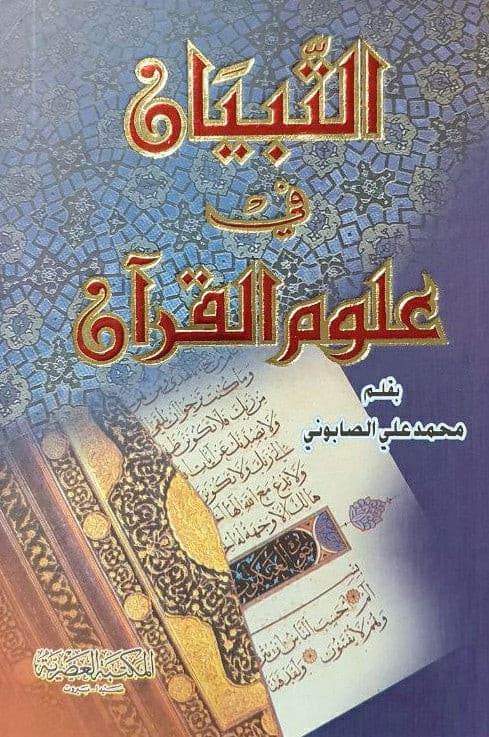
Maʿānī al-Qurʼān (Translation of the Qurʾān)
The process of translation started in the previous year is continued in this module for the remaining 20 segments (ajzā) of the Qurʼān. The objectives, as before, are to:
- create familiarity with Quranic Arabic.
- introduce the students to the content of the Qurʼān.
- cultivate basic translation skills.
- lay the foundation upon which his further study of the Qurʼān will be built.
Sīrah (Prophetic Narrative)
The fifth part of Sayyid Ab al-Hasan al-Nadwī’s Qaṣaṣ al-Nabiyyīn is employed as the history reader for this year. It details the life (sīrah) of the Holy Prophet Muhammad ﷺ. It is taught with the aims of:
- imparting a more detailed knowledge of sīrah than was learnt in the first year.
- progressing from a purely narrative to a more analytical mode of reading history.
- drawing lessons from the sīrah.
- reinforcing the students’ knowledge of Arabic.
Course Material
Mukhtaṣar al-Sīrah al-Nabawiyyah
by Abū al-Ḥasan ʿAliyy Nadwī

Muṣṭalaḥ al-Ḥadīth (Hadith Methodology)
The discipline of Muṣṭalaḥ al-Ḥadīth is taught using the institute’s proprietary text, authored by the late Mufti Taha Karaan, complemented by the practical application of theory within Ibn Ḥajar al-ʿAsqalānī’s, Bulūgh al-Marām. This is done to:
- familiarise the students with fundamental jargon and hadith methodology.
- reinforce theoretical know-how through application.
Course Material
Al-Mustamlaḥ fī Muṣṭalaḥ al-Ḥadīth wa Manhaj Naqdih
by Mufti Mohammad Taha Karaan
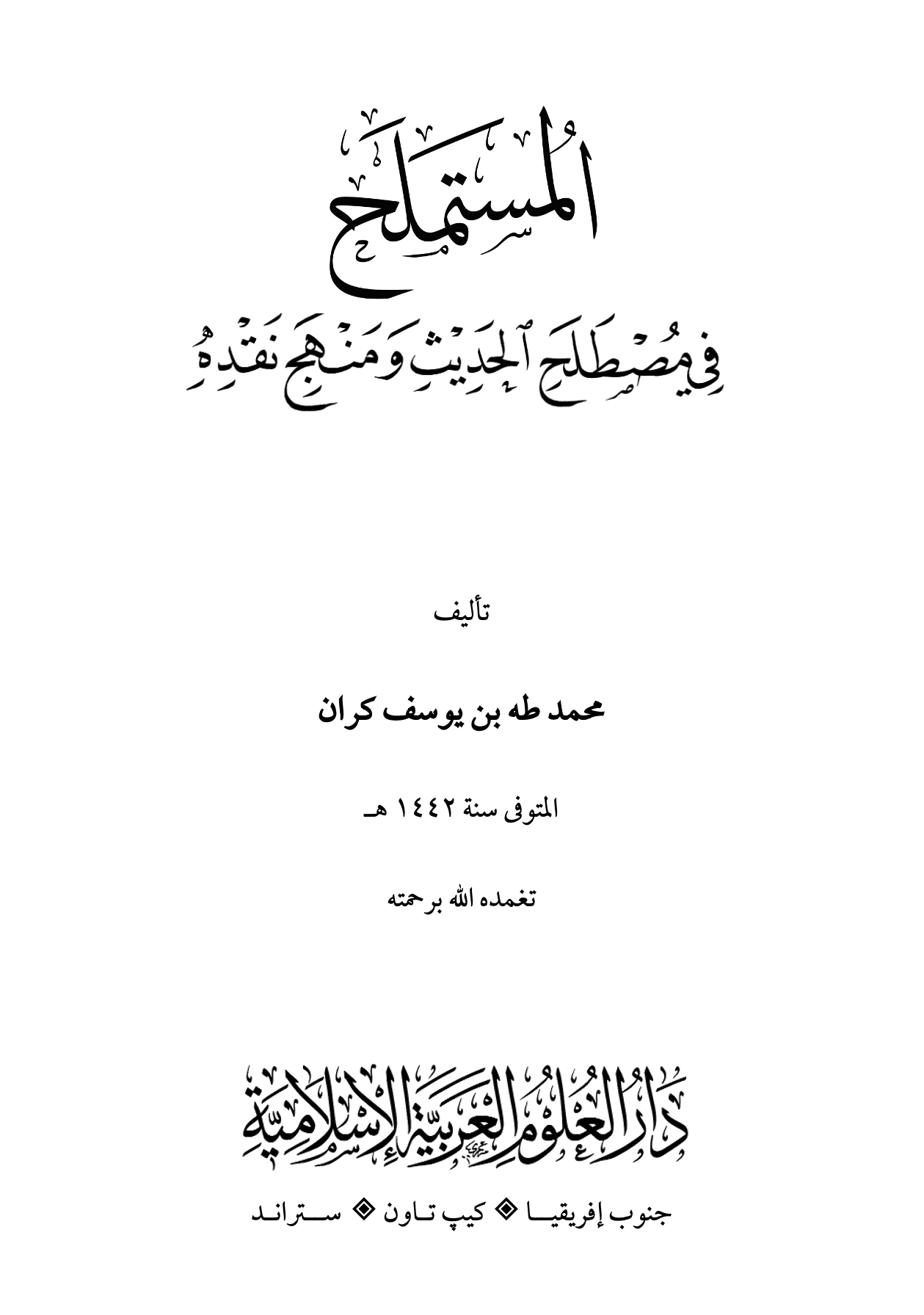
Ḥadīth
Two genres of Hadith are studied: Aḥādīth al-Aḥkam, or Hadith of legal substance; and Aḥādīth al-Faḍāʼil, or hadith of an edifying nature where the emphasis falls upon attributes of moral excellence and the virtue to be obtained from good deeds. The prescribed texts are Hāfiẓ Ibn Ḥajar al-ʾAsqalānī’s, Bulūgh al-Marām fī Adillat al-Aḥkām, for legal hadith, and later, a further 500 Hadith from Imam al-Nawawī’s, Riyāḍ al-Ṣāliḥīn, for edifying Hadith.
The study of Legal Hadith aims at:
- creating familiarity with the Hadith corpus on which the Shāfiʿī school rests.
- demonstrating the harmony between our Fiqh and Hadith.
- inculcating a balanced and fair-minded approach to Fiqh.
In the Edifying genre, the aims, as before, are to:
- introduce the students to Hadith of a specifically edifying nature.
- draw moral lessons out of Hadith
- acquaint them with the linguistic style of Hadith
- cultivate basic translation skills.
Course Material
Bulūgh al-Marām fī Adillat al-Aḥkām
by Hāfiẓ Ibn Ḥajar al-ʾAsqalānī
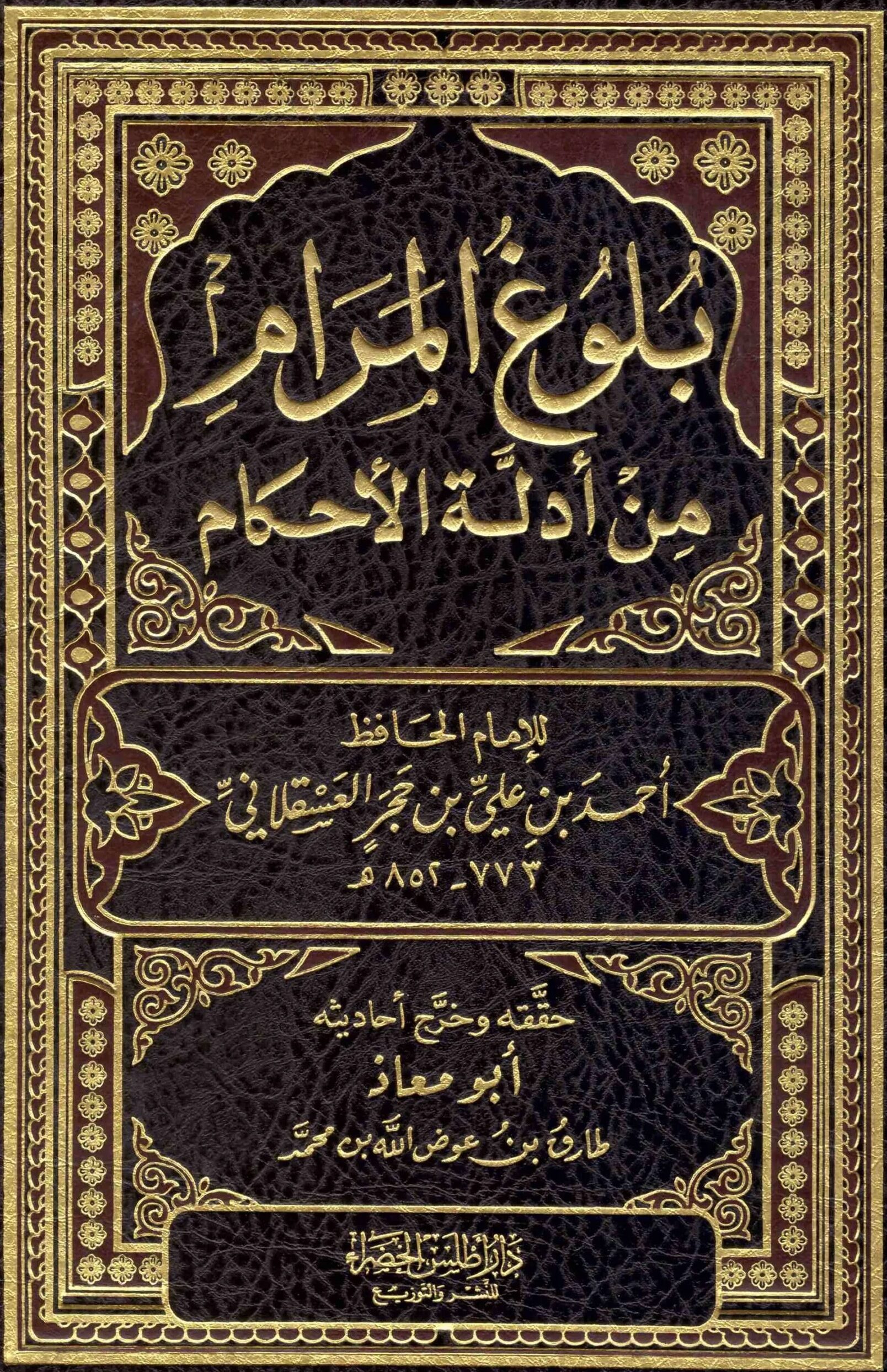
Riyāḍ al-Ṣāliḥīn
by Imām al-Nawawī
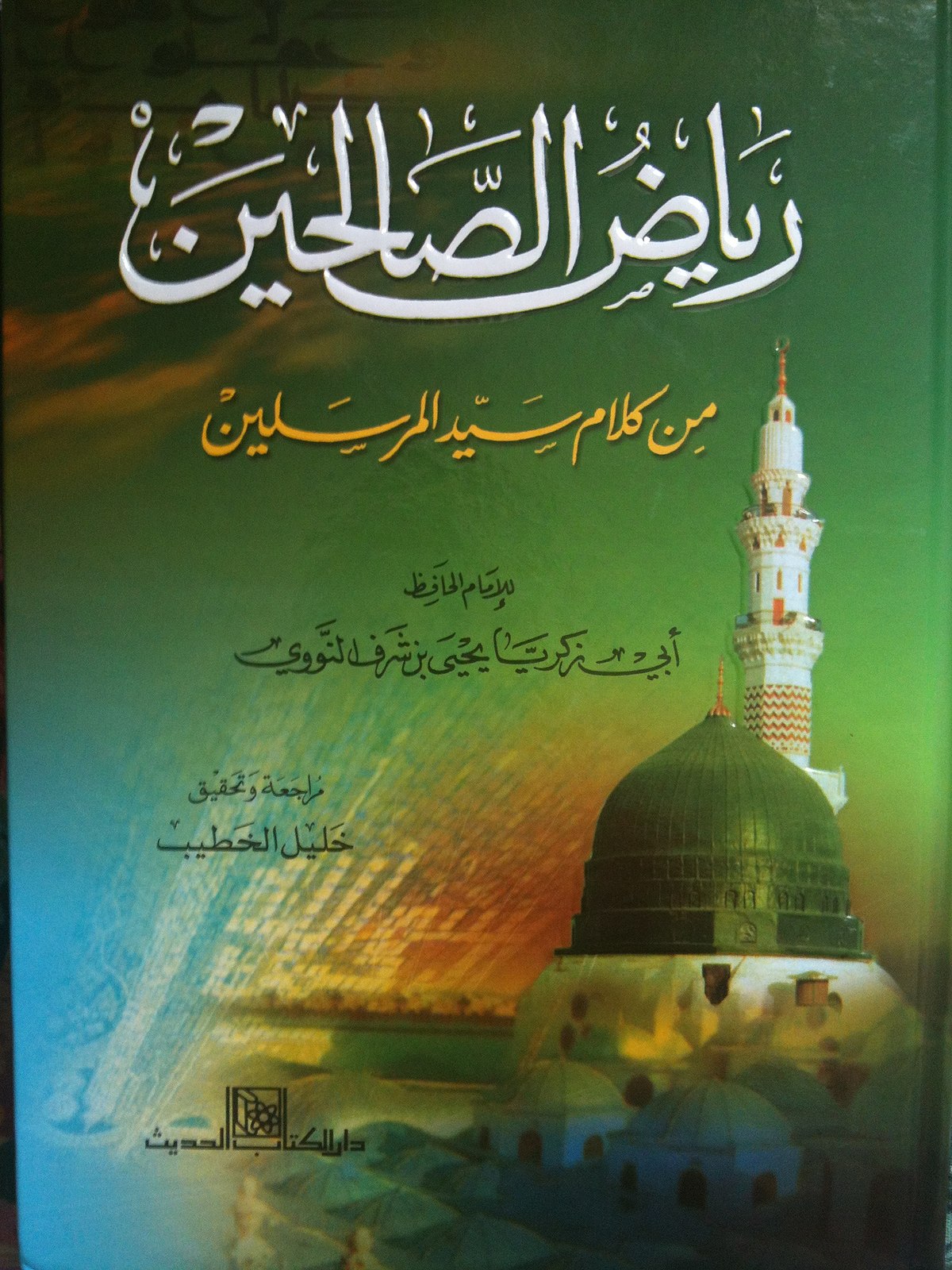
Uṣūl al-Fiqh (Islamic Legal Theory & Procedural Law)
This discipline is taught using the text Al-Wāḍiḥ fil-Uṣūl al-Fiqh by Muḥammad Sulaymān al-Ashqar. This text serves as an excellent initiation to Uṣūl al-Fiqh, especially with respect to the book taught in the third year, Al-Wajīz fī Uṣūl al-Tashrīʿ al-Islāmī. The objectives of the module are to:
- introduce the students to the essential concepts and terminology of the subject.
- instil a basic understanding of how fiqh and uṣūl al-fiqh relate to one another.
- construct a broad framework for further inquiry into the subject.
Course Material
Al-Wāḍiḥ fil-Uṣūl al-Fiqh
by Muḥammad Sulaymān al-Ashqar
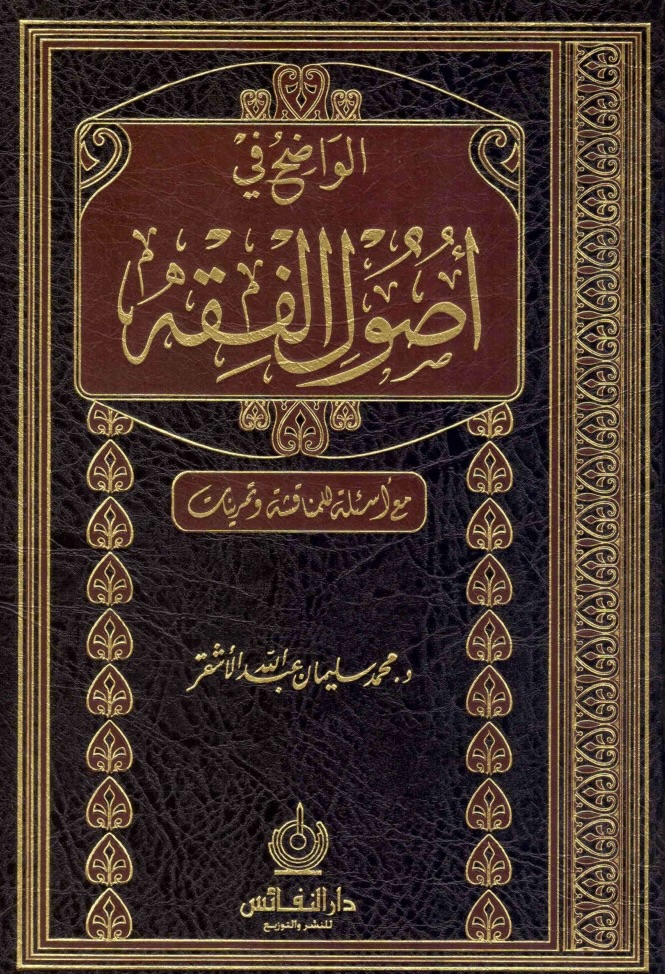
Fiqh (Substantive Islamic Law)
For this module, a number of Fiqh texts have been selected, each addressing a distinct chapter of Fiqh. For Kitāb al-Ṣalāh, we have selected two excerpts from Abdullāh Bāfaḍl’s, Al-Muqaddimah al-Ḥaḍramiyyah, and Ibn al-Naqīb’s, ʿUmdat al-Sālik respectively, for Kitāb al-Zakāh, Shaykh al-Islām Zakariyyā’s, Fatḥ al-Wahhāb, for Kitāb al-Ṣiyām, Jalāl al-Dīn al-Maḥallī’s, Kanz al-Rāghibīn, and for Kitāb al-Ḥajj, Al-Khaṭīb al-Shirbīnī’s, Al-Iqnāʿ. Furthermore, Kitāb al-Nikāḥ and al-Qaḍāʾ are to be taught from Al-Fiqh al-Manhajī, written in collaboration by Muṣṭafā al-Khinn, Muṣṭafā al-Bughā and ʽAliyy al-Shurbajī. The aims of the module are to:
- create familiarity with Fiqh in its broader spectrum.
- preserve the link between Fiqh and its sources by presenting masāʽil (legal scenarios) in conjunction with their respective legal substantiations to instil confidence in Madh-hab orientated fiqh without descending into bigotry (taʽaṣṣub).
Course Material
Al-Muqaddimah al-Ḥaḍramiyyah
by Abdullāh Bāfaḍl
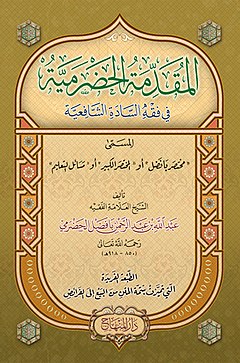
ʿUmdat al-Sālik wa ʿUddat al-Nāsik
by Ibn al-Naqīb
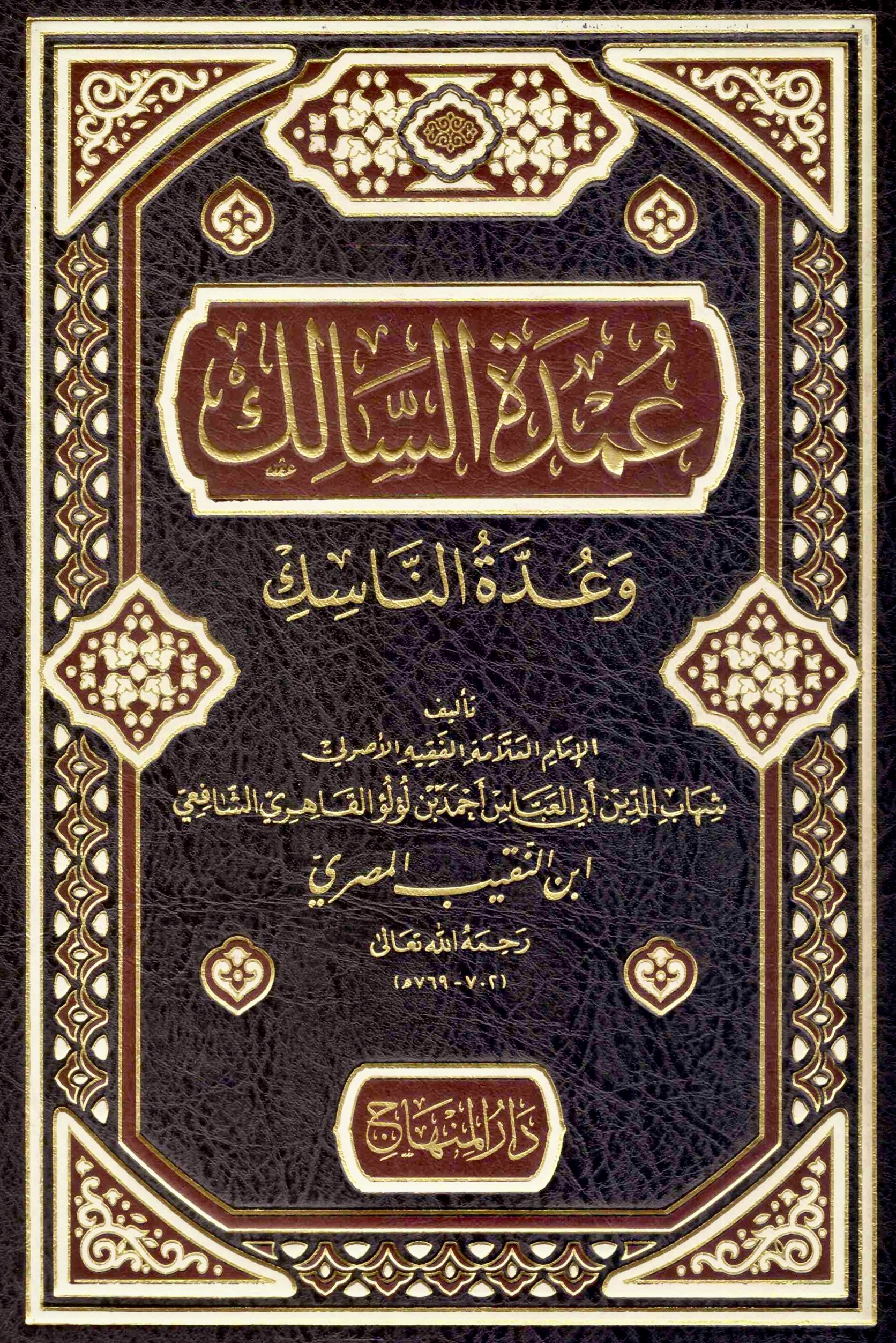
Fatḥ al-Wahhāb bi Sharḥ Manhaj al-Ṭullāb
by Shaykh al-Islām Zakariyyā
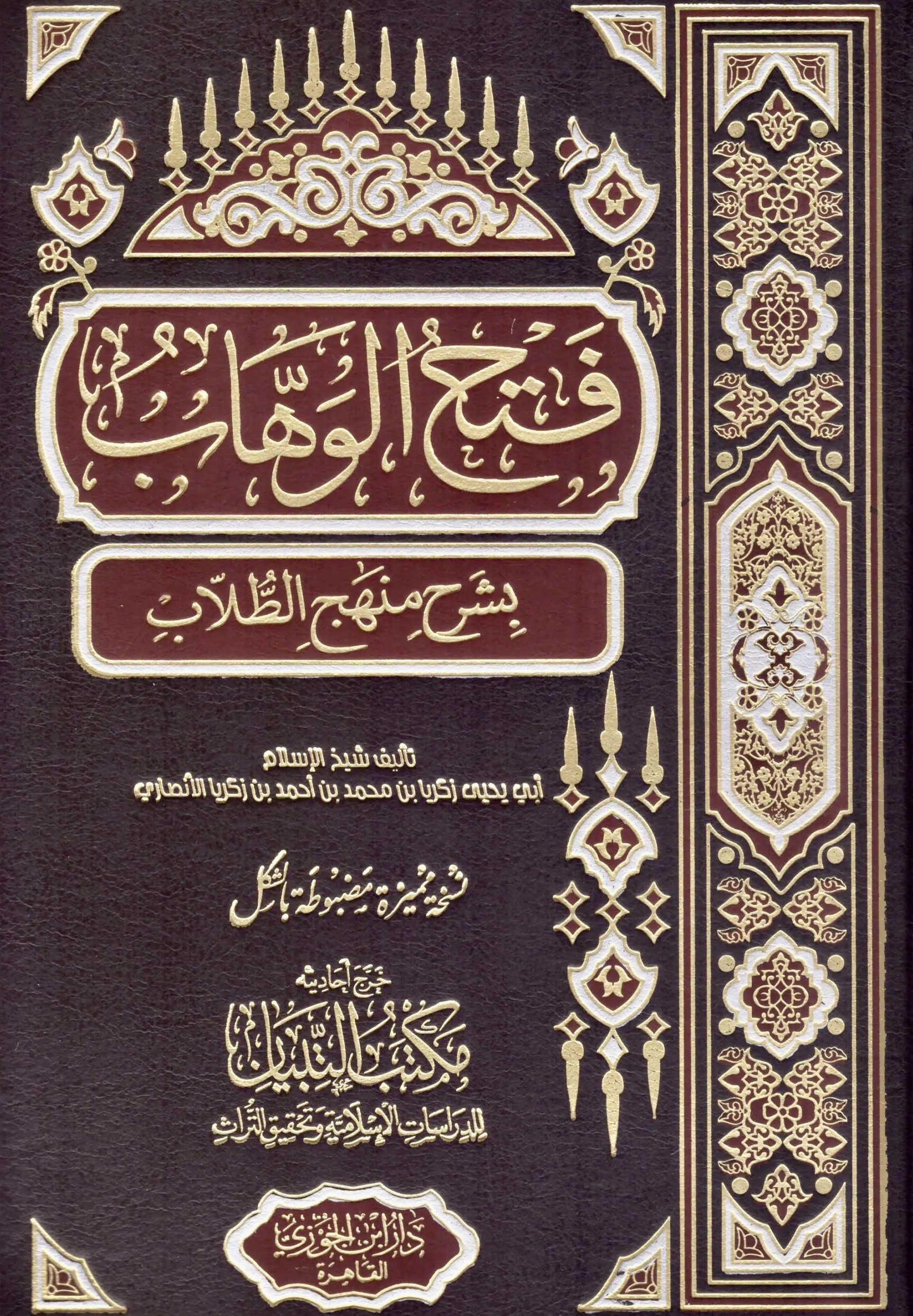
Kanz al-Rāghibīn fī Sharḥ Minhāj al-Ṭālibīn
by Jalāl al-Dīn al-Maḥallī
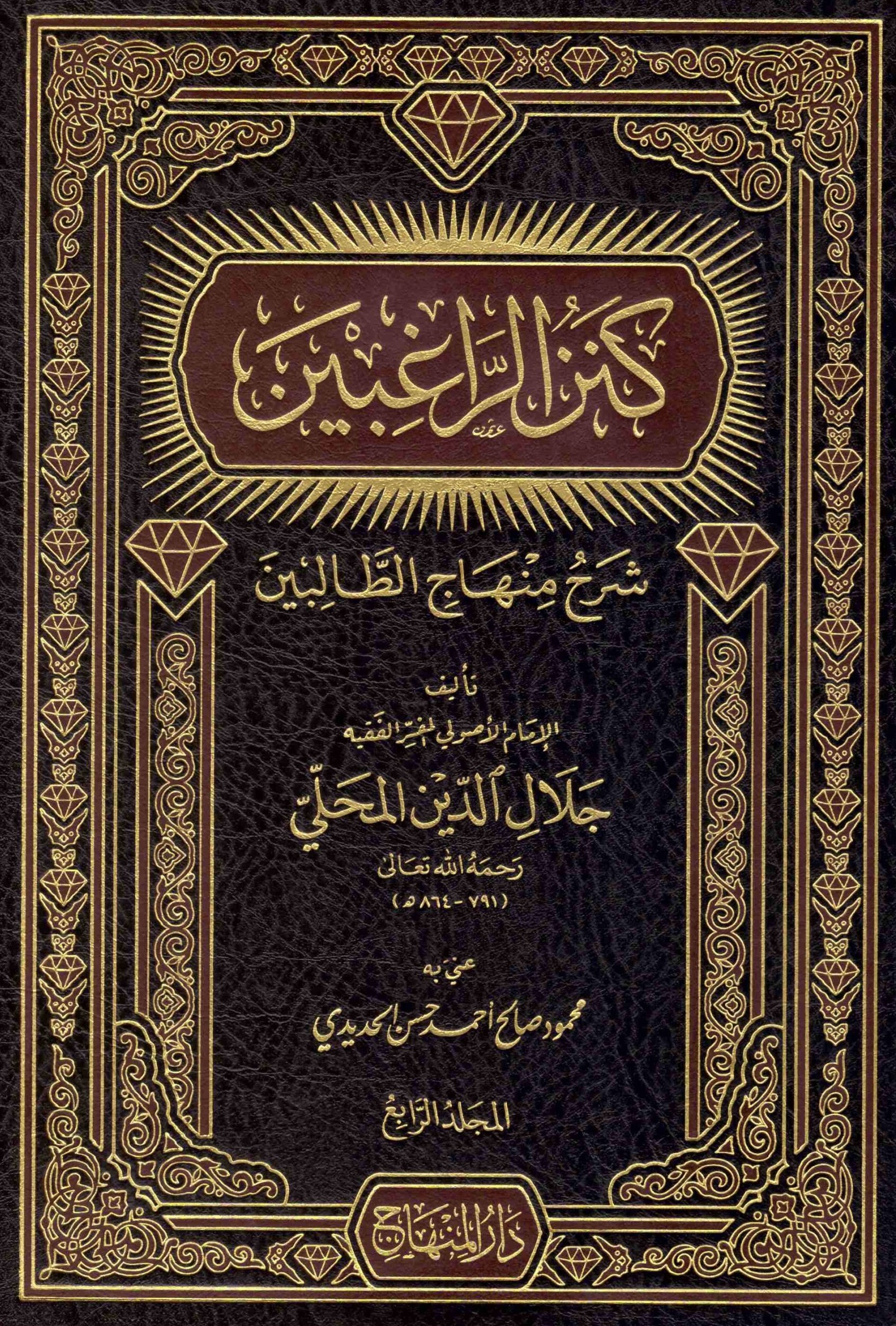
Al-Iqnāʿ fī Ḥall Alfāẓ Abī Shujāʿ
by Al-Khaṭīb al-Shirbīnī
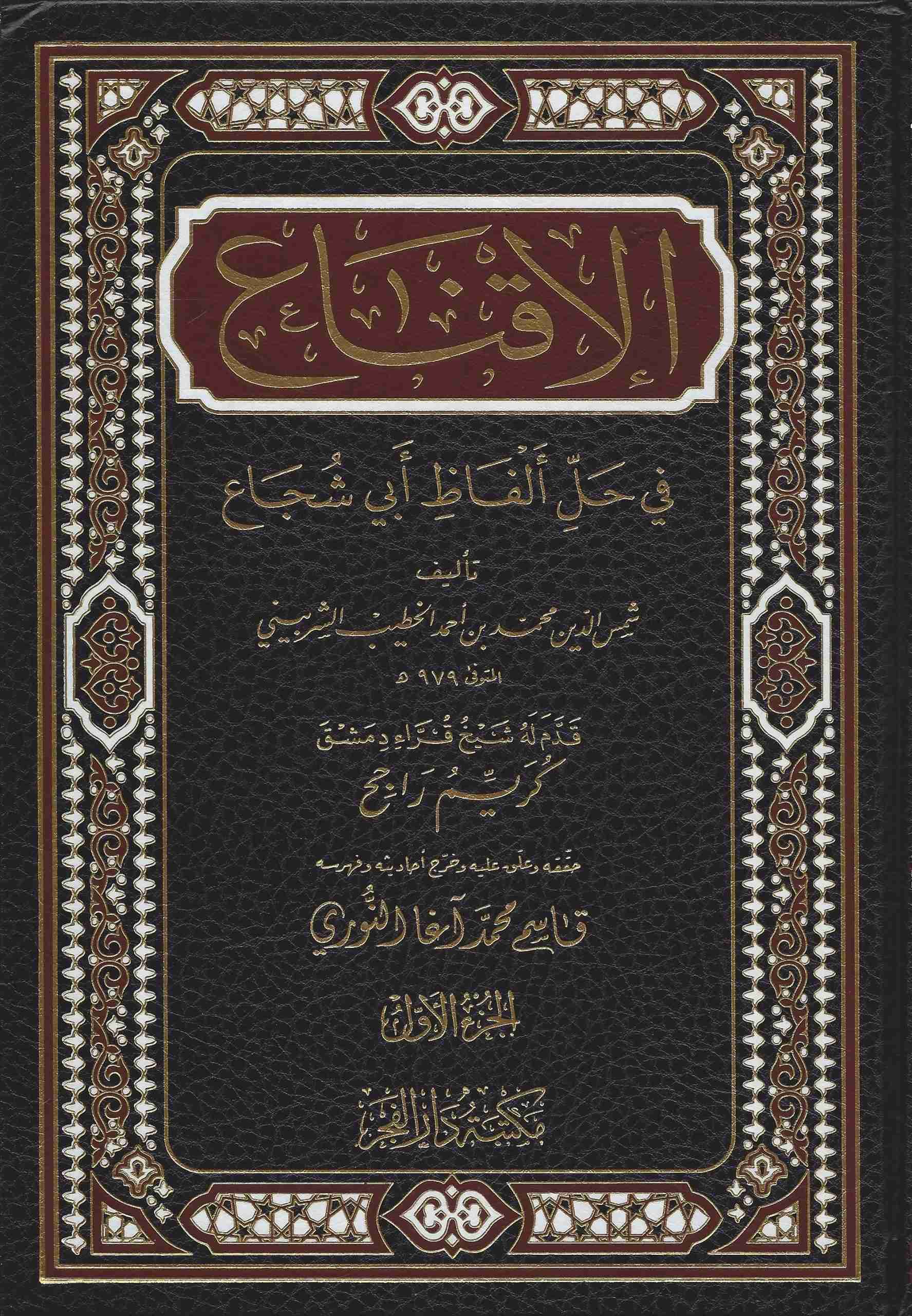
Al-Fiqh al-Manhajī
by Muṣṭafā al-Khinn, Muṣṭafā al-Bughā and ʽAliyy al-Shurbajī
